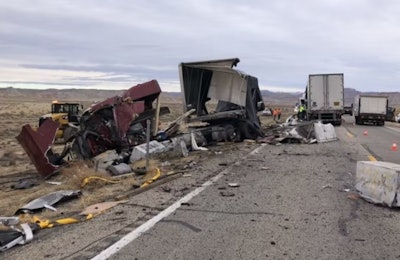
The Federal Motor Carrier Safety Administration last week announced it would award over $463 million in grants to states to reduce commercial motor vehicle-involved crashes, fatalities, and injuries.
The Motor Carrier Safety Assistance Program (MCSAP) grant program includes funding to tate and local law enforcement and other government agencies for safety inspections of trucks and buses, investigations of motor carriers in response to safety concerns, and audits of new trucking and bus companies.
These grants come after a significant rise in fatalities involving large trucks, according to a statement from FMCSA. In preliminary 2021 data from NTHSA, there was a 13 percent increase in fatalities from 2020. Earlier this year, DOT announced the National Roadway Safety Strategy to address traffic fatalities and serious injuries by adopting the “safe system” approach, which focuses on safer roads, safer people, safer vehicles, safer speeds, and better post-crash care. These grants will help DOT implement the NRSS.
RELATED NEWS: NHTSA report shows 2021 traffic deaths reached total last seen in 2005
"We are using resources available through the President's Bipartisan Infrastructure Law to award more funding than ever before – a 52 percent increase from last year -- to help prevent truck and bus crashes in every tate and territory," said the U.S. Transportation Secretary Pete Buttigieg. "These grants will help improve the safety of our trucks and buses and save lives on our nation’s roadways.”
All 50 States, the District of Columbia, and the U.S. territories will receive federal funds.
"FMCSA’s core mission is safety, and our work supports the U.S. Department of Transportation's comprehensive National Roadway Safety Strategy working towards zero fatalities on our roadways," said FMCSA Deputy Administrator Robin Hutcheson. "MCSAP grant funding is an important tool to help reduce large truck crashes by supporting critical CMV safety programs in every state.”








